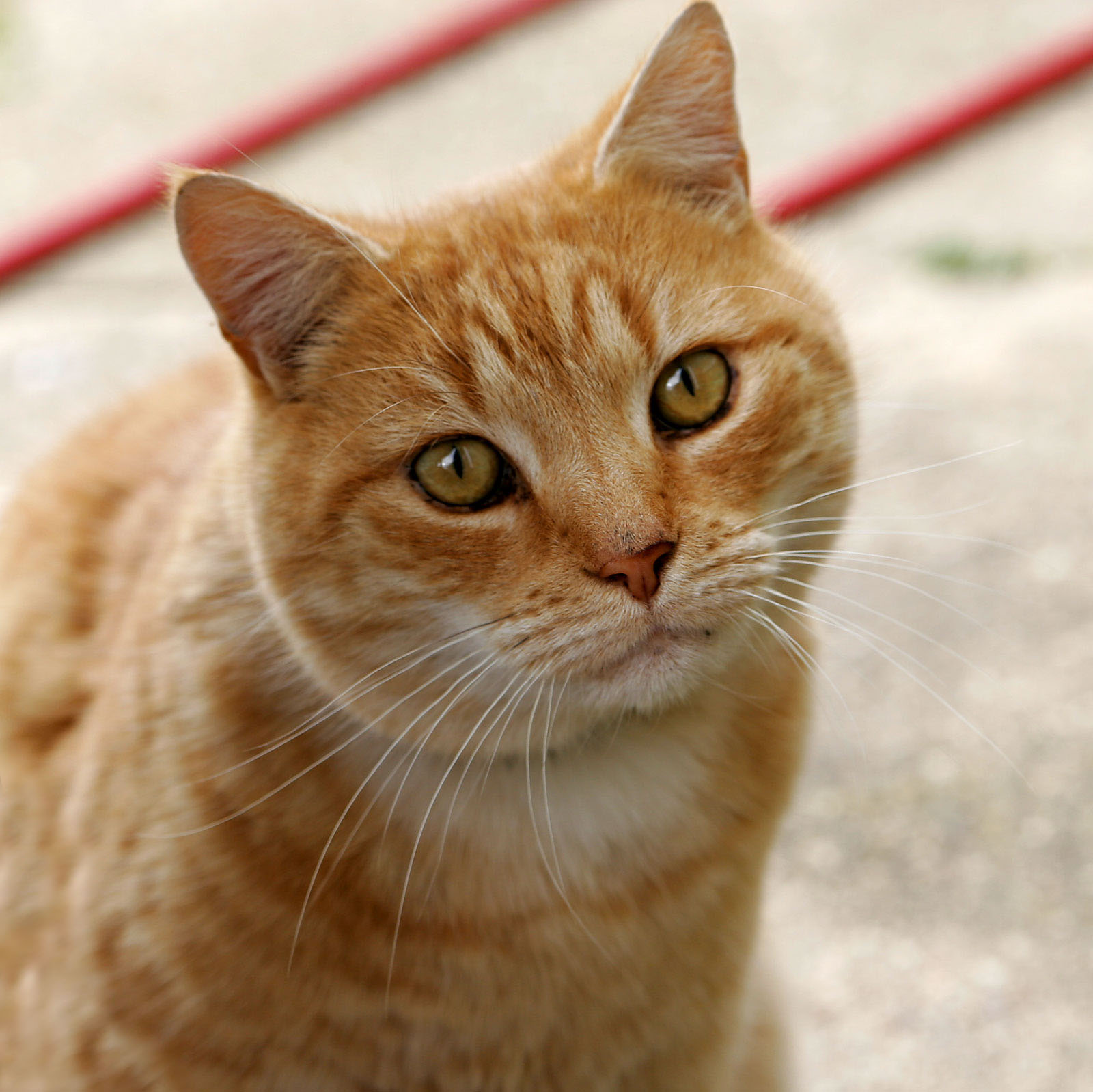cat

A domestic cat
Meanings
Noun
- An animal of the family Felidae:
- A person:
- A strong tackle used to hoist an anchor to the cathead of a ship.
- cat-o'-nine-tails.
- A sturdy merchant sailing vessel .
- The game of "trap and ball" (also called "cat and dog").
- The pointed piece of wood that is struck in the game of tipcat.
- A vagina, a vulva; the female external genitalia.
- A double tripod (for holding a plate, etc.) with six feet, of which three rest on the ground, in whatever position it is placed.
- A wheeled shelter, used in the Middle Ages as a siege weapon to allow assailants to approach enemy defences.
- Abbreviation of catamaran
- A program and command in Unix that reads one or more files and directs their content to the standard output.
- A catapult.
- Abbreviation of category
- Abbreviation of catfish
- Any of a variety of earth-moving machines. (from their manufacturer Caterpillar Inc.)
- A caterpillar drive vehicle (a ground vehicle which uses caterpillar tracks), especially tractors, trucks, minibuses, and snow groomers.
- Short form of catalytic converter
Verb
- To hoist (the anchor) by its ring so that it hangs at the cathead.
- To flog with a cat-o'-nine-tails.
- To vomit.
- To go wandering at night.
- To gossip in a catty manner.
- To apply the cat command to (one or more files).
- To dump large amounts of data on (an unprepared target) usually with no intention of browsing it carefully.
Adjective
Related
Similar words
- feliform ("cat-like" carnivoran), feloid (compare Caniformia, Canoidea (superfamily))
- feline cat, a feline
- pantherine cat, a pantherine
- panther (i.e. tiger, lion, jaguar, leopard), panther (i.e. black panther)
- Smilodontini (tribe), Machairodontini (tribe) (Homotherini (tribe)), Metailurini (tribe), "saber-toothed cat" (saber-tooth)
Narrower meaning words
Origin
- From Middle English cat, catte, from Old English catt ("male cat"), catte, from Proto-Germanic *kattuz.
- The Germanic word is generally thought to be from Late Latin cattus ("domestic cat") (c. 350, Palladius), from Latin catta (c. 75 , Martial), from an language. This would roughly match how domestic cats themselves spread, as genetic studies suggest they began to spread out of the Near East / Fertile Crescent during the Neolithic (being in Cyprus by 9500 years ago,), especially after they became popular in Egypt. However, every proposed source word has presented problems. Adolphe Pictet and many subsequent sources refer to Barabra (Nubian) and "Nouba" (Nobiin) kadīs as possible sources or cognates, but M. Lionel Bender says the Nubian word is a loan from Arabic قِطَّة. Jean-Paul Savignac suggests the Latin word is from an Egyptian precursor of Coptic ϣⲁⲩ ("tomcat") suffixed with feminine -t, but John Huehnergard says "the source [...] was clearly not Egyptian itself, where no analogous form is attested."
- It may be a Wanderwort. Kroonen says the word must have existed in Germanic from a very early date, as it shows morphological alternations, and suggests that it might have been borrowed from Uralic, compare Northern Sami gađfe ("female stoat") and Hungarian hölgy ("stoat; lady, bride") from Proto-Uralic *käďwä ("female (of a fur animal)").
- Related to Scots cat, West Frisian kat, North Frisian kåt and kaat, Dutch kat, Danish kat, Norwegian katt, Swedish katt, German Low German Katt and Katte, German Katze, Alemannic German Chatz, Icelandic köttur, Afrikaans kat, Latin cattus, French chat, Norman cat, Occitan cat, Portuguese gato, Spanish gato, Aromanian cãtush, Scottish Gaelic cat, Irish cat, Breton kazh, Welsh cath, Cornish kath, as well as Ancient Greek κάττα, Greek γάτα, and from the same ultimate source Russian кот, Ukrainian кіт, Belarusian кот, Polish kot, Kashubian kòt, Lithuanian katė, and more distantly Armenian կատու, Basque katu, Hebrew חתול, Arabic قِطَّة alongside dialectal Maghrebi Arabic قَطُّوس (from Berber, probably from Latin).
- Abbreviation of catenate.
- Possibly a shortened form of catastrophic.
- Shortened from methcathinone.
- Shortened from catapult.
- Abbreviation of caterpillar
Modern English dictionary
Explore and search massive catalog of over 900,000 word meanings.
Word of the Day
Get a curated memorable word every day.
Challenge yourself
Level up your vocabulary by setting personal goals.
And much more
Try out Vedaist now.

